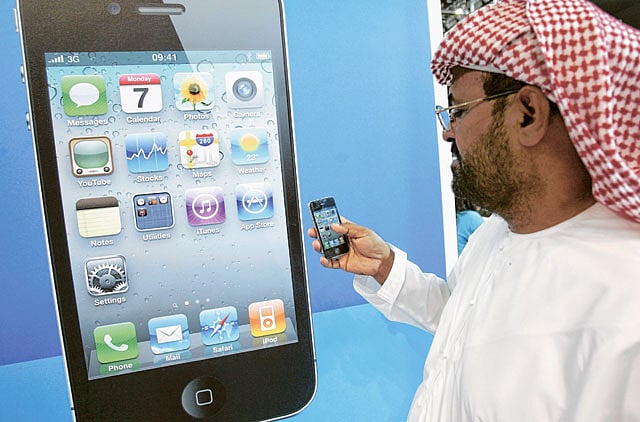Fortunately, three of Gulf Cooperation Council (GCC) countries are ranked among the top 30 in the recently released 2010-2011 Global Information Technology Report. The achievement is testimony of steady appreciation of use of information and communication technologies (ICT) in GCC states.
In particular, the Network Readiness Index (NRI) serves as the cornerstone of the report, in turn produced by the World Economic Forum in partnership with Insead. Insead is a renowned international graduate business school and research institution, with campuses in France, Singapore and the UAE.
Variables
In order to arrive at NRI, the comprehensive study relies on 68 variables, of which 27 or 40 per cent are hard data such as the number of personal computers and internet penetration rate. The other variables are subjective in nature depending on views expressed by executives about business conditions where they reside. Altogether, the variables are classified into three broad categories — (1) market, (2) political, regulatory and infrastructure environment, individual, business and government readiness for ICT and (3) individual, business and government usage of ICT.
Performance
Countries are ranked according to their performance on NRI. The UAE leads the GCC and Arab world having achieved 24th position among 138 countries ranked in the latest report.
For its part, Qatar made notable strides, advancing by four notches to clinch number 25 globally. Qatar's strengths partly include its ability to attract universities and colleges to its Educational City project — something that will most likely strengthen further in the years ahead, as the country prepares to host the Fifa World Cup 2022.
Hence, Qatar overtook Bahrain as the second best ranking achieved by an Arab country. Nevertheless, Bahrain occupied 30th rank, having dropped a single notch primarily reflecting advances of other nations. Not surprisingly, Bahrain's strengths include financial market sophistication. The financial services sector comprises nearly one quarter of the country's gross domestic product (GDP) in constant terms.
It remains to be seen whether or not the unrest encircling Bahrain will in any way affect the country's ranking on NRI. With regard to the other GCC countries, Saudi Arabia advanced by five notches to 33rd globally and strengthening the positive trend.
Happily, the survey gives high marks to the kingdom when it comes to spending on educational institutions. As such, the kingdom stands the chance of further strengthening its ranking on the back of steady spending on education, as evidenced by the government decision to develop 25 technical colleges equipped with the latest in technologies. The plan is part of Saudi Arabia's ninth development plan, covering the period 2010 to 2014,
For its part, Oman made the biggest progress among GCC states, having advanced nine notches to secure 41st ranking worldwide.
Yet Kuwait moved forward merely by a single notch to 75th ranking globally. Accordingly, Kuwait is in need of exerting maximum efforts to improve its ranking on NRI via sustained investment in ICT resources. Other than Kuwait, the GCC countries are ahead of many European Union countries when it comes to ICT including Lithuania, Hungary and Italy, to name a few.
As to shortcomings, the report points out the limited availability of scientists and engineers besides the requirement of numerous procedures to enforce contracts.
Certainly, the GCC authorities have the opportunity to deliver more services electronically in the region. Clearly, the future looks bright for the GCC states when it comes to appreciating ICT.
The writer is a Member of Parliament in Bahrain.
Sign up for the Daily Briefing
Get the latest news and updates straight to your inbox
Network Links
GN StoreDownload our app
© Al Nisr Publishing LLC 2026. All rights reserved.
